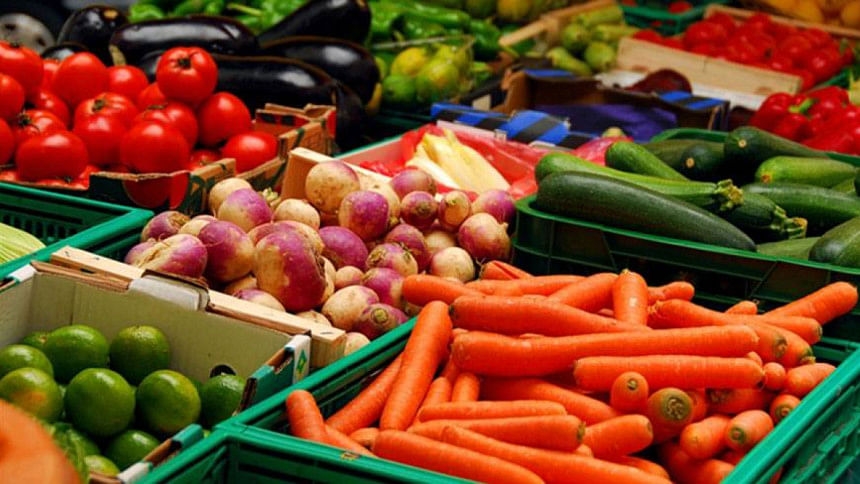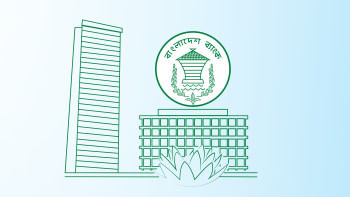Farmers deceived as traders cash in on unrest

Every day around noon, Md Ujjal Hossain pauses at his banana orchard to admire how well the fruit of his labour has turned out.
“Look at the banana stems -- they have grown so well. I was dreaming of getting a bounty from them,” said the 34-year-old grower from Meherpur, a major farming district in the southwest.
The non-stop countrywide blockade and shutdowns from January 6 though have killed off his hopes.
Earlier in December last year, he cut a deal with a trader for 350 bunches of banana for Tk 150 each. But the trader, who sends the fruits over to Chittagong, slashed the price to Tk 130 per bunch, citing transport fare escalation owing to heightened arson risks on transit.
Ujjal's is not an isolated case. Like him, many farmers across the country have to accept reduced prices from wholesalers and traders on the same ground.
“We have become the victims of increased transport cost. Opportunistic traders are transferring the extra costs on our shoulders,” said Yakub Ali, another farmer from Meherpur.
Aminul Islam Bulbul, a vegetable wholesaler in Meherpur, admitted that they are offering lower prices than the ones they agreed upon prior to the unrest.
But, on the other hand, people in big cities, for example Dhaka and Chittagong, are having to pay higher prices for fruits and vegetables -- for higher transport costs and reduced supply.
Ujjal, who has also cultivated brinjals, beans and potatoes on the 10 bigha of land that he leased, however, cannot accept the lower prices being offered.
“I believe my bananas were sold at higher prices in Chittagong. Even after that, the trader has deducted the price from me,” said the farmer, who had to sell brinjal for as low as Tk 5 each kilogram last week at a wholesale market.
He is putting off plucking his beans as the current wholesale prices would not help him recover his labour and transport costs.
For instance, on February 25, farmers had to sell one kilogram of beans for Tk 3 at the wholesale market.
“Do you think prices should be this low? At what prices are beans and brinjals selling in Dhaka?” Over in the capital, beans sold for Tk 20-35 per kilogram at the retail on February 25. Brinjal sold for Tk 20-Tk 40 each kg, according to Department of Agricultural Marketing data.
“The blockade has come as a cruel blow for me and my fellows,” said a crestfallen Ujjal, who is now waiting for a buyer to sell the potatoes he planted on 2.5 bigha of land.
He said the current price of the vegetable at the wholesale market in Meherpur stands at Tk 9 each kg.
And after deducting labour and transport costs and stockists' commission, he would get Tk 5.5 per kg, which is lower than his production cost.
So, he has decided to wait for a middleman. Middlemen buy from farmers and put them in cold storages to sell during the lean season.
Last year, Ujjal sold potatoes to a middleman for Tk 350 a maund (40 kg) in the third week of February and made a profit out of it.
Unfortunately, no middleman has turned up yet, leaving him very anxious.
The potatoes can be left in the field for another ten days at best, after which their quality will start to deteriorate.
Ujjal, who is yet to get the full payment from the trader for the bananas, said he does not have enough cash in hand to store potatoes in a cold storage.
And even if he arranges the sum, it would leave him with no money to cultivate the next crop, taro.
“I don't know how I will get by. Had the political situation remained normal, I wouldn't have to lose sleep now.”

 For all latest news, follow The Daily Star's Google News channel.
For all latest news, follow The Daily Star's Google News channel. 



Comments